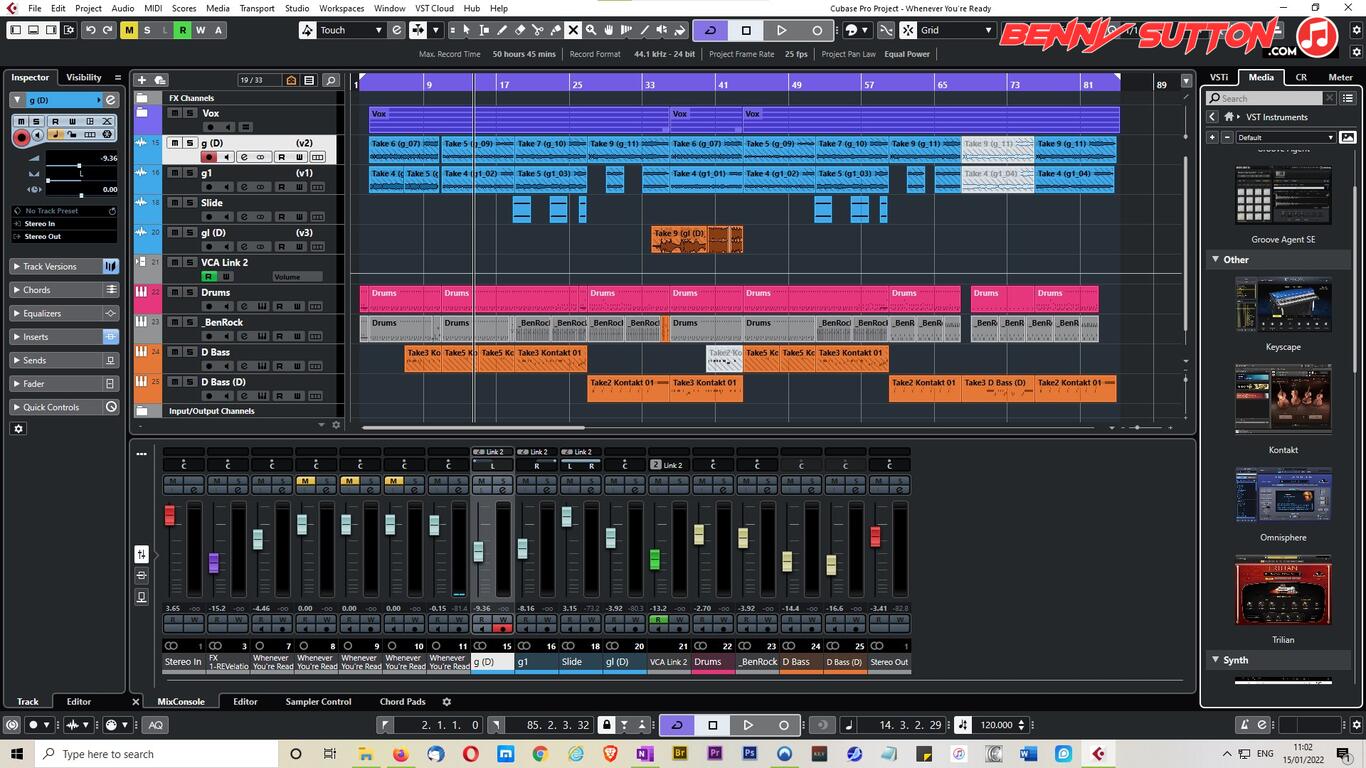Industry-standard DAW for recording, editing, and post; widely used in studios and dubbing stages.
Pro Tools
Pro Tools, developed by Avid, is often called the industry standard DAW for professional recording, editing, and mixing. Since the 1990s, it has dominated commercial studios, film post-production houses, and broadcast facilities for one main reason: precision and reliability.
Originally created as a digital replacement for tape-based systems, Pro Tools built its reputation on rock-solid multitrack recording and sample-accurate editing. Its workflow mirrors a traditional studio console, making it instantly familiar to engineers coming from analogue backgrounds.
Key strengths:
- Audio editing power: slip, grid, and shuffle modes; elastic audio for timing correction; world-class editing tools for vocals, drums, and dialogue.
- Mixing environment: detailed automation, bussing, and routing with a hardware-style mixer layout.
- Session management: handles massive track counts and high-resolution projects reliably.
- Plugin integration: supports AAX plug-ins optimized for performance and stability.
- HDX systems: hardware acceleration provides ultra-low latency and scalable DSP processing for large studios.
- Post-production features: video sync, surround mixing, and frame-accurate editing for film and TV.
Used by top engineers like Al Schmitt, Andrew Scheps, and Sylvia Massy, and by facilities from Abbey Road to Skywalker Sound, Pro Tools remains the backbone of professional recording.
While it’s less loop-oriented than Ableton or Logic, Pro Tools excels wherever precision, editing detail, and mix translation matter most—tracking bands, mixing records, or handling feature film sound. It’s the DAW that defines the modern studio workflow.
